Filter by
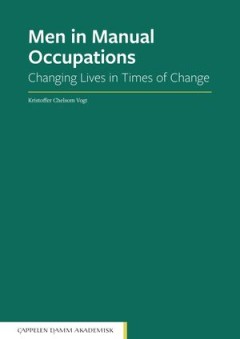
Men in Manual Occupations
A shortage of skilled workers is currently emerging in many countries. Yet public discourse and much research literature convey the impression that manual labor is somehow outmoded, requiring competencies that are no longer necessary in today’s «post-industrial, information-based society». The question of how to achieve the right balance between different types of work in a society is one t…
- Edition
- -
- ISBN/ISSN
- 9788202530945
- Collation
- -
- Series Title
- -
- Call Number
- 370.19 VOG m
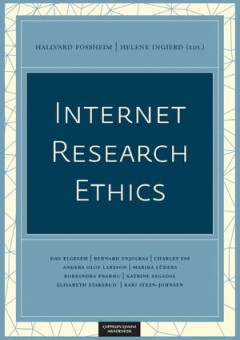
Internet Research Ethics
This anthology addresses ethical challenges that arise within the field of Internet research. Among the issues discussed in the book are the following: When is voluntary informed consent from research subjects required in using the Internet as a data source? How may researchers secure the privacy of research subjects in a landscape where the traditional public/private distinction is blurred and…
- Edition
- -
- ISBN/ISSN
- 9788202489519
- Collation
- -
- Series Title
- -
- Call Number
- 302.231 LUD i
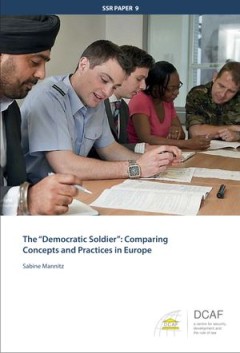
The "Democratic Soldier: Comparing Concepts and Practices in Europe
Since the end of the Cold War almost all European countries have reformed their armed forces, focusing on downsizing, internationalization and professionalization. This paper examines how these changes in security sector governance have affected the normative model underlying the military's relationship to democracy, using the image of the 'democratic soldier'. Drawing on a comparative analysis…
- Edition
- -
- ISBN/ISSN
- 9781911529361
- Collation
- -
- Series Title
- -
- Call Number
- 306.2 MAN d

The Institutional Practice
The nursing home resident of today is old and frail. Despite such a frailty, many residents are hospitalized, often with the intention of life-extension. Furthermore, rates of hospitalization varies considerably between countries, regions and institutions, even within smaller geographical areas. Even though relating to the same structural framework and conditions, distance to hospitals for inst…
- Edition
- -
- ISBN/ISSN
- 9788202549138
- Collation
- -
- Series Title
- -
- Call Number
- 300 AGO i
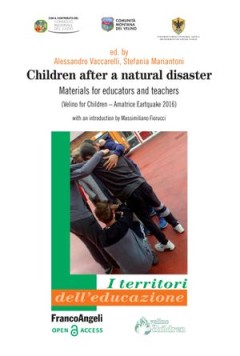
Children after a Natural disaster
"Catastrophes and natural disasters lead to numerous problems in the education of children and teenagers, who present as the most vulnerable subjects in the communities affected. Often, in these circumstances, adults (educators, teachers, parents) do not know how to respond to their needs, reactions and feelings. What do we need to know about childhood trauma? What answers should we give to chi…
- Edition
- -
- ISBN/ISSN
- 9788891767974
- Collation
- -
- Series Title
- -
- Call Number
- 904 VAC c
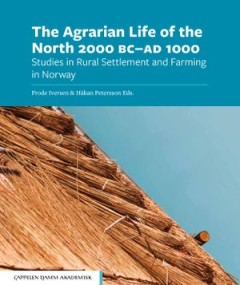
The Agrarian Life of the North 2000 BC AD 1000
The 14 articles presented in this publication represent some of the latest and most relevant research on rural settlement and farming from the Late Neolithic through the Early Medieval Period in Norway. It deals with the impact of climate change, plague and the AD 536â7 volcanic event and some of the earliest farms north of the Arctic Circle. It provides new perspectives and archaeological…
- Edition
- -
- ISBN/ISSN
- 9788283140996
- Collation
- -
- Series Title
- -
- Call Number
- 930.1 DAH a

From Dust to Digital : Ten Years of the Endangered Archives Programme
Much of world’s documentary heritage rests in vulnerable, little-known and often inaccessible archives. Many of these archives preserve information that may cast new light on historical phenomena and lead to their reinterpretation. But such rich collections are often at risk of being lost before the history they capture is recorded. This volume celebrates the tenth anniversary of the Endanger…
- Edition
- -
- ISBN/ISSN
- 9781783740642
- Collation
- -
- Series Title
- -
- Call Number
- -
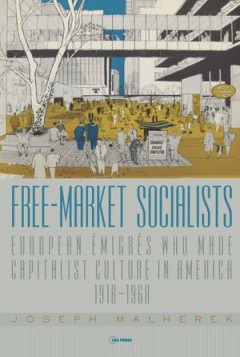
Free-Market Socialists : European Émigrés Who Made Capitalist Culture in Am…
The Hungarian artist-designer László Moholy-Nagy, the Austrian sociologist Paul Lazarsfeld, and his fellow Viennese Victor Gruen—an architect and urban planner—made careers in different fields. Yet they shared common socialist politics, Jewish backgrounds, and experience as refugees from the Nazis. This book tells the story of their intellectual migration from Central Europe to the United…
- Edition
- -
- ISBN/ISSN
- 9789633864487
- Collation
- -
- Series Title
- -
- Call Number
- -
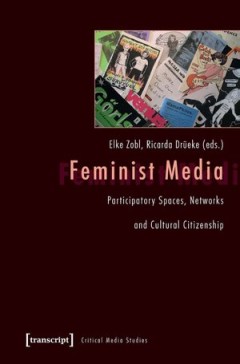
Feminist Media : Participatory Spaces, Networks and Cultural Citizenship
While feminists have long recognised the importance of self-managed, alternative media to transport their messages, to challenge the status quo, and to spin novel social processes, this topic has been an under-researched area. Hence, this book explores the processes of women's and feminist media production in the context of participatory spaces, technology, and cultural citizenship. The collect…
- Edition
- -
- ISBN/ISSN
- 9783837621570
- Collation
- -
- Series Title
- -
- Call Number
- -
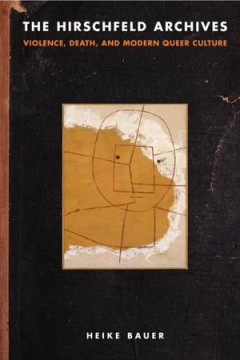
The Hirschfeld Archives: Violence, Death, and Modern Queer Culture
This work examines how death, suicide and violence shaped modern queer culture, arguing that negative experiences, as much as affirmative subculture formation, influenced the emergence of a collective sense of same-sex identity. Bauer looks for this history of violence in the work and reception of the influential sexologist Magnus Hirschfeld (1868-1935), and through Hirschfeld's work examines t…
- Edition
- -
- ISBN/ISSN
- 9781439914328
- Collation
- -
- Series Title
- -
- Call Number
- 302.5 BAU h
 Computer Science, Information & General Works
Computer Science, Information & General Works  Philosophy & Psychology
Philosophy & Psychology  Religion
Religion  Social Sciences
Social Sciences  Language
Language  Pure Science
Pure Science  Applied Sciences
Applied Sciences  Art & Recreation
Art & Recreation  Literature
Literature  History & Geography
History & Geography